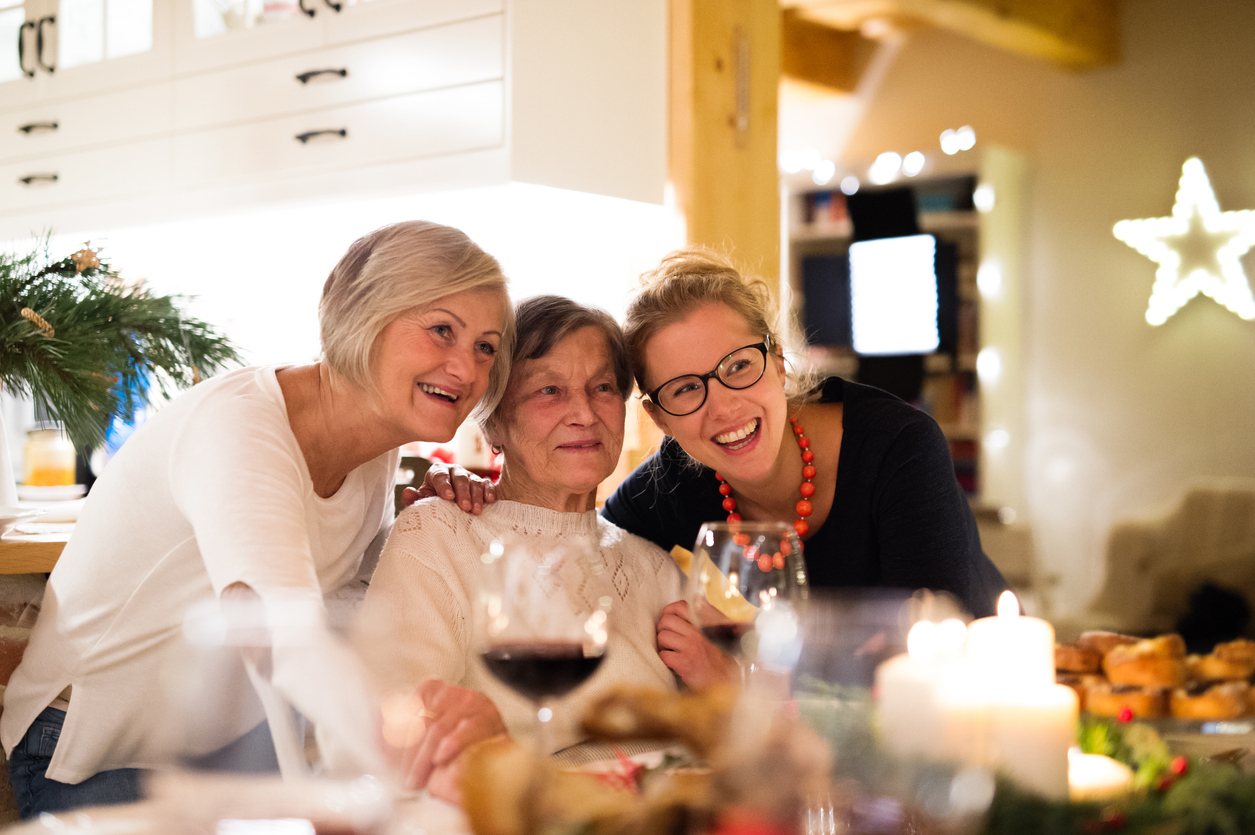The holidays are a wonderful time to get together with family and friends, but they also offer an opportunity to assess the health and well-being of a senior loved one. This is especially true if it has been weeks or months since the last visit since changes will likely be more obvious. As you plan your visit here are a few red flags to watch for.
5 Health Changes to Look for When Visiting
Mobility: The ability to get around on foot is a good gauge of overall physical health so when a senior appears to have problems with mobility it may be a red flag. Aging brings with it a loss of muscle mass and strength which impacts balance and stamina putting seniors at higher risk for falls and injuries and thus loss of independence. This is why regular exercise is so important to healthy aging.
Simply getting exercise and staying active as described in the livestrong.com article, “Why Your Mobility Worsens As You Age, and What to Do About It,” can slow aging. Exercises like stretching, bending and lifting can go a long way to helping a senior regain the strength they need to move safely and stay independent. For organized regular exercise consider enrolling them in a program at the local senior center or SilverSneakers® which offers in-person as well as online programs.
Memory: Although forgetfulness is a common part of aging, memory loss is not. If a senior loved one struggles to remember faces or names, has problems communicating coherently, or exhibits unusual behaviors like anger or aggression, consider the possibility of dementia. Since dementia is often a progressive condition, even small signs can indicate that it’s time to see a physician for an assessment. By addressing memory loss sooner than later families can provide the right level of care and oversight and prepare for the possibility of a move to a memory care community like Ganton’s Countryside where safety and security are provided in a comfortable and therapeutic environment. Learn more about dementia in the aarp.org article, “Why Caregivers Should Confront Rather Than Avoid a Dementia Diagnosis.
Weight loss: One of the most obvious signs of health problems is weight loss. Unless a senior has been purposely dieting to lose weight, weight loss should be taken seriously. It may be just that shopping and cooking are more than they can manage alone, or it could be health related. Losing interest in eating, forgetting to eat, or dental problems that make eating painful are among the most common reasons, and other possibilities include diseases like cancer or diabetes, arthritis, digestive system problems, medications that cause nausea or diminish appetite and more defined in the webmd.com article, “Is It Normal to Lose Weight as You Age?” When unplanned weight loss occurs, always consult a physician to assess the reasons and how best to correct them.
Personal hygiene: When a normally clean and well-groomed senior loved one appears unkempt or has body odor, it’s a clear sign that personal hygiene is slipping and help is needed. Bathing, dressing, and other personal care tasks can become such a challenge that seniors may skip baths or showers and wear unclean clothes when doing laundry becomes too difficult.
Also important is dental hygiene, which can be challenging for those with conditions that affect manual dexterity like arthritis, Parkinson’s disease, stroke, or dementia. As a result, it may be time to increase in-home caregiving, and install safety aids like walk-in showers, grab bars and lever faucet handles. Another option is to consider all the care and services assisted living has to offer 24/7 year-round.
Conditions at home: When visiting a senior loved one in their home, take a few minutes to assess how clean and safe the home appears. Look for trash that hasn’t been removed, piles of old magazines or newspapers, baskets of dirty laundry, dishes piling up in the kitchen sink, and bathrooms that need cleaning. If a usually clean and tidy home is messy and unclean, slipping health may make it hard to do chores as often as needed. Whether it is due to physical or mental problems, an unclean home can increase the risk of illness, injury and other health concerns like those described in the health.usnews.com article, “Home Safety Checklist for Seniors.”
At Ganton’s Countryside, we cover every base so residents can live in a clean, healthy and safe environment, while getting all the care they need. For more information about Countryside, please call Margaret Nagel at (517) 206-5000 or download our brochure to learn about our care levels, cost, and amenities.


